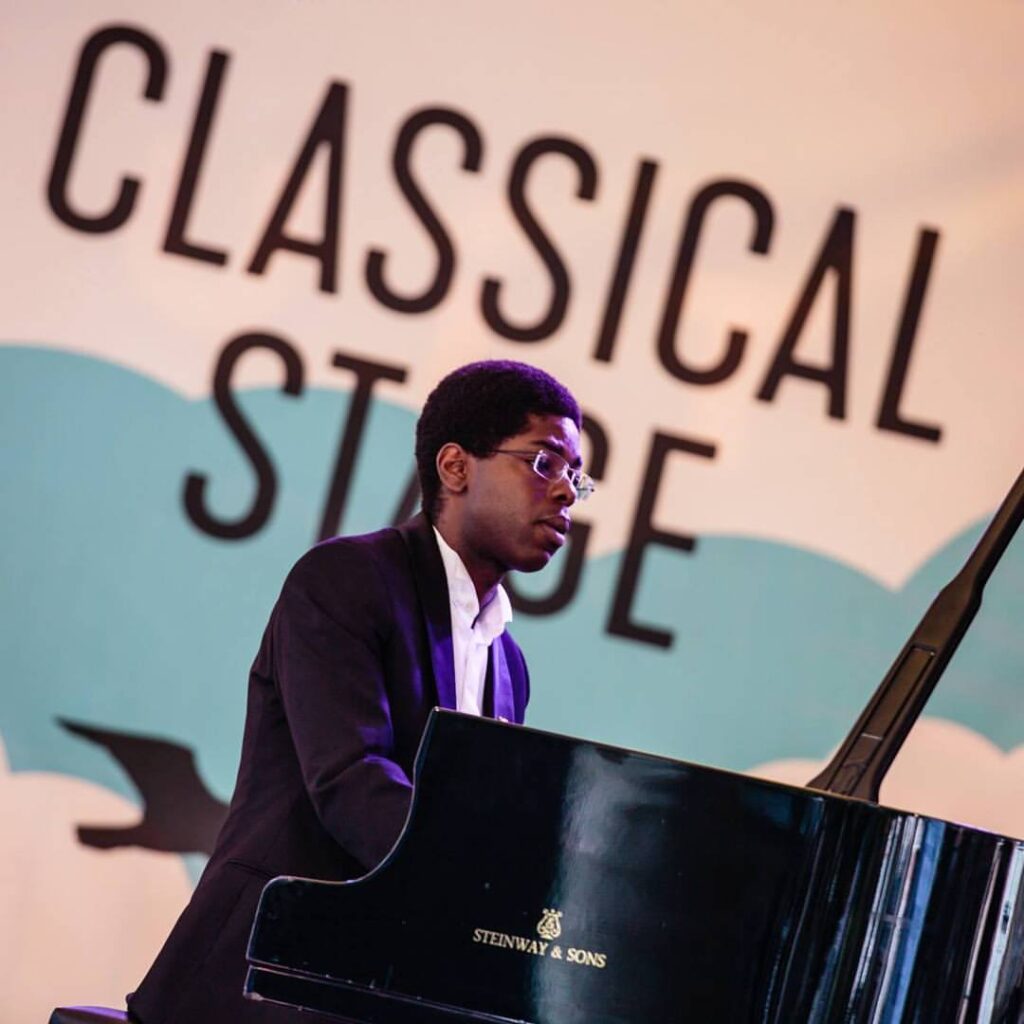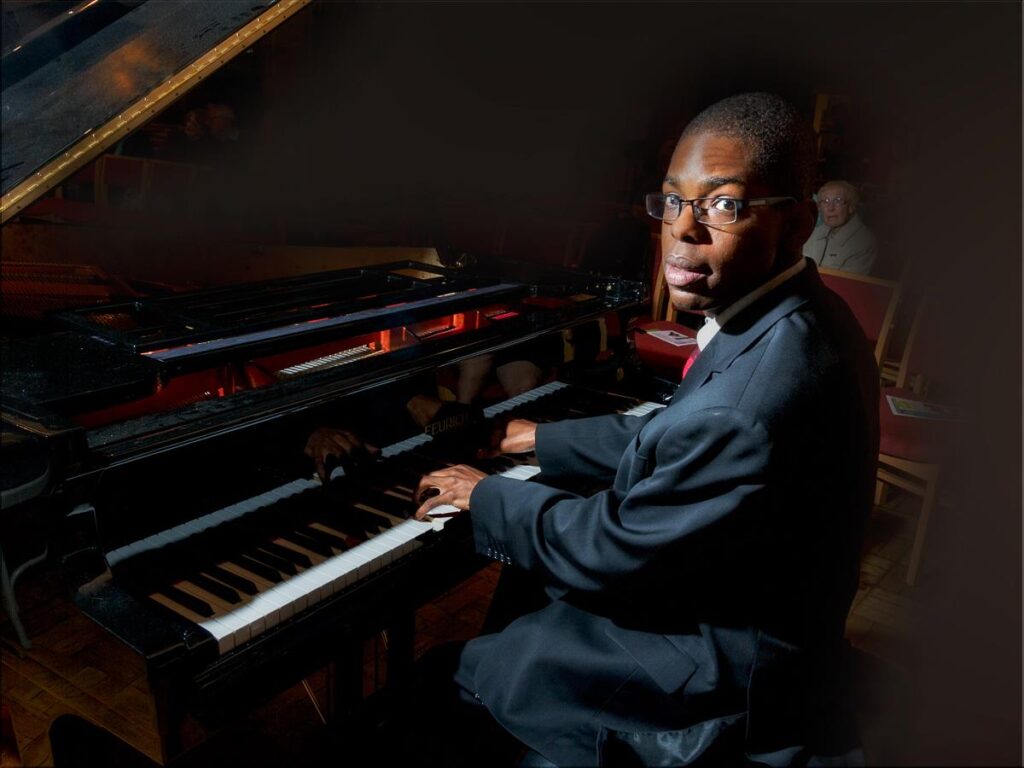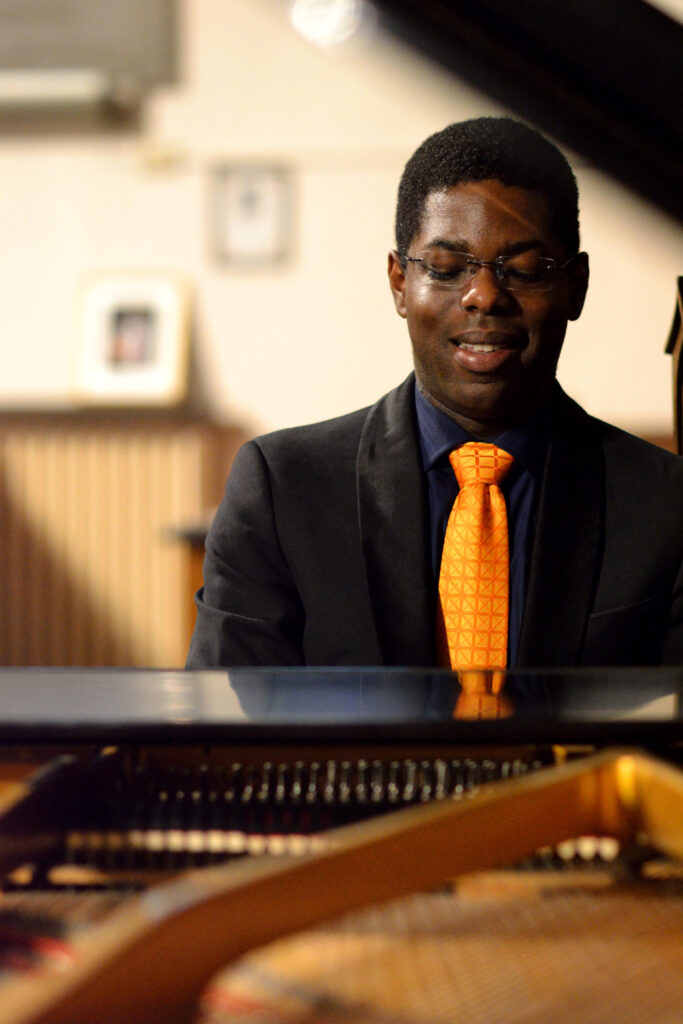From an early age, as I was first enrolled in piano lessons, I was quick to realize that there were not (m)any other young black pianists who were learning how to play classical music – at least that I had ever met. Fast forward a couple of decades, and nothing has changed. No “growth of the sport”, no “catering to a wider audience”. There are so many ways this writing can go… is it a question of the chicken/egg concept (i.e. is there a lack of interest in classical music within the black community because it is so underrepresented at the highest levels/”misunderstood music”/etc., or is the lack of representation yet another form of systemic discouragement towards some groups of society)?
I have always loved everything classical music has to offer – from a seemingly endless expanse of amazing music spanning hundreds of years, while providing those who choose to play it a parallel variety of technical, musical, and ideological challenges. No matter how many hours of practice, there will always be more work to do and new heights to reach. Delving into the diverse works of J.S. Bach and Domenico Scarlatti could by themselves cost a lifetime of exploration, let alone engaging into the oeuvres of Mozart, Beethoven, Chopin, Liszt, Brahms, and beyond. As “musically gifted” as I was told to be when I was young, there were so many other pianists who seemed to be light years ahead of what I thought I could ever achieve. Therein remained the goal to improve and become the best version of my musical self that I could be.

While I was committed to my own improvements, and those my piano teachers laid out for me, I was often met with equal confusion, resentment, discouragement, and sometimes straight-up disdain from others around me. I don’t “look” the part of a classical musician, nor do I talk as such (whatever that means). I have often been told – especially during my time living abroad – to perhaps switch my musical focus to something more in my lane, such as jazz music. I have even been stopped from entering a concert venue in which I was the performer until I was able to convince the unidentified individual (thankfully not the concert promoter!) to actually look at the advertising poster to confirm that I should even be allowed inside the building. In another instance I was questioned, while at a music store looking for recordings of pieces I was intending to prepare and perform, as to whether the music I sought was actually for me. Once stated that I, too, am a classically-trained musician, the look of shock was also followed by the comment “Wow, you definitely can’t judge a book by its cover!”
“Wow, you definitely can’t judge a book by its cover!”
The amount of restraint it took to not lose my temper in that moment took every fibre of my being. I remember discussing the situation with my father shortly afterwards, and was even more disheartened to hear his sincere, yet candidly matter-of-fact response: “Well, son, get used to it.” Unfortunately, he was one hundred percent correct.
During all of my academic years, from elementary school through university, I did not encounter a single other black pianist. This interesting observation extends not only at my own schools, but also to competitions, professional performances, piano masterclasses, or any other musical environment. It was not something I dwelt on at the time, as I was so preoccupied with building my own career and completing my education that I didn’t have the time to be as cognizant as I probably should have been. I only tended to notice the imbalance when people would bring it up to me in conversation as they were meeting me for the first time at my own performances.
Once the proverbial light bulb *finally* went off in my head, I realized the stakes were much higher than simply accomplishing great feats at the instrument and making a name for myself. I also came to understand and appreciate that I represented a community within the community – and by that I mean being a black classical musician (see: unicorn) in an already marginalized society (and yes, I admit that those who immerse themselves within the classical music community tend to be pigeon-holed as being on the fringes of mainstream). Not only was it – and still is – of paramount importance to be at my best on stage, but it was imperative to remain aware that the lights, camera, and attention may not necessarily stop for me just because the performance is over.
…it was imperative to remain aware that the lights, camera, and attention may not necessarily stop for me just because the performance is over.

I am not one to theorize whether or not my ethnicity impacts my career opportunities, nor do I care to. It’s rather quite the opposite. I believe that quality will always succeed, so as long as I continue to prepare well, push myself to be a better musician tomorrow than I am today, maintain a respectful attitude, and appreciate the incredible support from everyone around me and those who have contributed to my career, the rest will take care of itself. I make no secret – diving even deeper into the seemingly infinite pool of classical music, travelling the world, seeing new places, meeting new people, performing, recording albums: these are among the many things that continue to fuel my passion for making music. If part of the job description involves being an ambassador of sorts, I fully welcome the opportunity every time, especially if it has the potential to encourage more young black individuals to explore a world they may not otherwise know exists, or feel entirely comfortable stepping into at first. It is a wonderful feeling to do what you love, regardless of perception as the next classical unicorn – or more importantly, as the next wonderful musician and human being.
The same sentiments hold true in between performances as well. As an independent artist, I have continued to focus the majority of my waking hours on building the practical component of my career – concerts and international travel to destinations around the world to share my music with others. Simultaneously, I have focused on teaching as well – working with students of all ages and abilities – first in Europe, and now here in Canada as well. It has been a long-standing dream of mine (again, no major revelation) to achieve a position within a higher-education institution such as a college or university – working with students who possess the highest level of talent, passion, and dedication to their art the way I also did.
It’s incredible how many positions just like these continue to be filled with faces and backgrounds which look remarkably the same. How many institutions in this vast expanse of the Great White North employ any teachers/professors/music educators who look anywhere similar to me? How long will this trend continue? Even as recently as a month or so ago, I applied for an associate professorship at a university not far from where I live where not only did I meet the outlined qualifications outlined in the job post, but I anticipated that my educational background in multiple continents in addition to my performance and teaching experience would have at very least warranted a cursory response. Unfortunately, there was not even so much as an acknowledgement to my follow-up let alone an invitation for a conversation. Gullible, yet optimistic, I remain for the next coveted opportunity.
Gullible, yet optimistic, I remain for the next coveted opportunity.

My intention is to share some of my experiences with those who are willing to read about them, and maybe in some way can relate. Let us continue to live side by side in melody and harmony. Let us continue to learn from each other. Let us continue to come together (with the perfect excuse!) for our shared love of music. Stay healthy and safe!
Thank you very much for reading.
– LW
We loved having you play with us Luke, thank you
Maureen WSO
A very interesting read and thank you for sharing. Unfortunately, this is not symptomatic of only the (classical) music world. We can only make sure that it doesn’t deter us from exploring our passions and letting our light shine.
Well done! I’m glad you decided to write and share, so that others may hear and know your story. You may not be the unicorn for long?
Camille
Son, hard work and talent, are a great foundation however the key to our advancement is having a vision and pursuing that vision with passion. The dedication you display every day serves as the catalyst that propels your career. Continue to embrace your vision and share your passion; this what enables you to transcend the predictable experiences you are sure to be presented with.